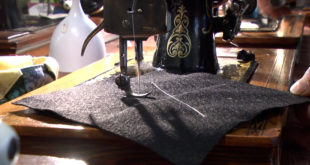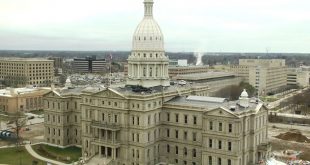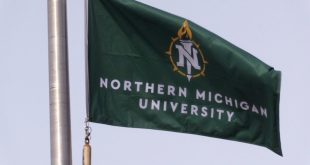Update: Typo in the third paragraph referenced Sharon Ave. as being downtown. That has been changed to reflect the correct street name, Sheldon Ave.
With what and how much? Those are two of the biggest questions discussed at life after the parking deck last night. Pat Coleman led the public forum, initially starting with the data presented during the last session. And the what common threads he found when collecting the public’s thoughts on the future of the parking deck.
Salt erosion is the largest culprit to the structural damage of the parking deck in downtown Houghton. Initial estimates for demolition of the parking deck is $1,000,000 for one financial scenario of the three possibilities.
There are a number of limitations presented by the set up of Houghton’s downtown. One suggested idea, which works in practice but presents a number of complications, would reroute US-41 off of Sheldon Avenue in downtown. Moving the highway up to Montezuma Avenue and turning the road into a two-way street. While Sheldon Ave. would convert to two way traffic and angled parking along each side. Outside of the logistical issues with rerouting roads, and developing new traffic routes so drivers can get the bridge easily. The biggest issue with Sheldon Ave. in this plan is there is not enough space, curb to curb, to make up spots lost with the lose of the parking deck. Logistically and financially Coleman said this sort of plan causes more headaches than solutions.
People during the first session for Life After the Parking Deck expressed that they want to see more green space close to the water front. They don’t want to lose parking in a central location to downtown. And wish for more mixed use buildings. Coleman noted that the property that the parking deck currently sits on is the most valuable land in downtown Houghton. Going as far to say that it is priceless because of the potential developments that could go there.
Taxpayers for many years have also fronted the bill for parking in the city, in order to keep parking free in downtown. Prior to the mall and their offer for free parking, costumers were charged a small amount to park in the city. That money went into a general fund for parking maintenance. Since then, maintenance funds have barely been covered by the revenue generated from parking passes for the deck. Some residents expressed that they want the city to look into what Marquette has done with their parking in recent years. Marquette addressed similar issues, that Houghton is contemplating now, regarding parking and revitalizing their downtown sector.
After taking questions from the audience, Coleman moved the session into small group discussions. So that the public could talk among themselves, speak with Coleman, or city officials, in order to express other desires for the property or concerns over future developments at the site. The city will need to answer, how many parking spots the city realistically needs for residents, downtown workers and what sort of parking set up will help to keep shoppers and tourists walking around downtown. And what sort of balance between parking, developments, and green space can be made.
The next session is still yet to be announced when it will be. But we will update you with more information at that time.
 Keweenaw Report Your Source for Local News and Sports
Keweenaw Report Your Source for Local News and Sports





